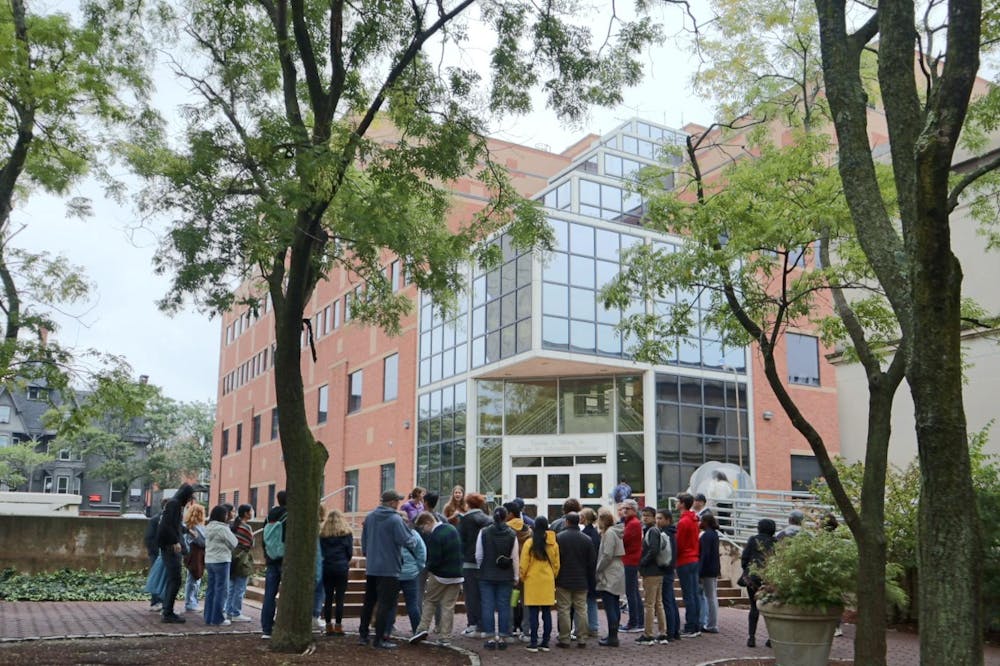The Department of Computer Science at Brown will soon eliminate its concurrent master’s program, which allows students to receive both a Bachelor of Science and a master’s degree in either computer science or cybersecurity by their eighth or ninth semester.
In an email to CS students on Oct. 24, the department announced it will no longer accept applications for the program after March 15, 2025. The program’s elimination is contingent upon the approval of the Graduate Council, which sets the policies for the University’s graduate schools.
This change means students currently in their first and second years at Brown will not be able to apply for the program. The CS department is still accepting applications from juniors.
The popularity of the concurrent master’s in CS has increased exponentially in recent years, according to Tom Doeppner, director of the CS undergraduate and graduate programs. 20 years ago, one or two students participated in the program per year, he said. Last year alone, 30 students graduated with dual degrees.
But despite the growing popularity, the CS department determined that the program did not provide students with enough benefits to justify its continuation. “It doesn't help them to get jobs, it doesn’t help them to get into PhD programs — (it is) a credential that’s just there for the credential’s sake,” Doeppner said.
When making the decision, the CS department consulted the Center for Career Exploration to ensure the program’s elimination would not negatively impact students’ career prospects.
“The Center doesn’t have any data or employer feedback that demonstrates student outcomes will be negatively impacted by the elimination of the concurrent master’s program,” Matt Donato, executive director of the CCE, wrote in an email to The Herald.
The CS department also considered administrative load when deciding to eliminate the program, Doeppner explained. The additional graduation requirements for the two degrees result in higher enrollment levels in already-filled courses, putting pressure on professors and teaching assistants.
To graduate from the program, students must take a minimum of 36 — six more than that required of a traditional undergraduate. They must also complete all requirements in their undergraduate and master’s degrees and take two additional courses in each of the four academic disciplines: life sciences, humanities, social sciences and physical sciences.
The extensive requirements also typically force students to take five courses in some semesters, which Doeppner said can be detrimental to their academic success. “It really cuts down on retention of information and keeps them from doing other useful things, such as activities on campus or getting involved in research,” he added.
The School of Professional Studies and the CS department have discussed eliminating the program for the past year, Doeppner said. These discussions culminated in a meeting among data science faculty members, where the vote to eliminate the program was nearly unanimous.
Some students in the program understand why the decision was made.
“A lot of people feel pressured to do it, myself included, for not a ton of benefit,” said Mahlon Page ’25 MSc’25, who is currently pursuing a master’s of computer science in the program.
The program’s extensive requirements also limit students’ ability to explore Brown’s Open Curriculum, Page said.
But others, like Komron Aripov ’25, think the department made the wrong decision.
“It’s a little bit disappointing to see that they’ve shut down the program,” said Aripov, whose application to the program was provisionally approved last year. Aripov will formally be a concurrent master’s student upon completion of the breadth requirements.
Aripov has always wanted to pursue a master’s in computer science. But he was especially drawn to the concurrent master’s program because he will not have to pay additional tuition to complete the master’s degree.
Aripov fulfilled his undergraduate concentration requirements by his junior year, so he found that the program was “really the only way you could do more and get more out of your degree.”
But Aripov agreed that having a master’s degree would likely not significantly improve job prospects.
Ryan Klivansky ’27 learned about the program in the spring of his first year and had been planning on applying ever since.
“I was always interested in getting a master’s degree, but programs are generally too expensive,” Klivansky wrote in a message to The Herald. The CS concurrent masters program seemed like “the perfect opportunity to take master’s level classes without forfeiting the time or money after my bachelor’s,” he added.
Klivansky was “surprised” and “initially distressed” to see the email announcing the elimination of the program. Klivansky had already taken three five-course semesters in anticipation of applying.
Maggie Ruan ’28, a current Herald illustrator, said she wrote about the program in her application to Brown. But she wasn’t “too sad” about the program’s elimination because she has not yet decided what she wants to pursue after graduation.
A concurrent masters program is also offered in biomedical engineering. The program currently accepts applications from students in their third year at Brown who have demonstrated “outstanding” academic performance and breadth of study outside of their concentration.
The CS department has also announced other structural changes to its undergraduate program. The department announced on Oct. 24 that the spring pre-registration process of CS will be “back to ‘normal’” after last semester’s process left students scrambling, The Herald previously reported.
“There will be no forms, no concentration restrictions and fewer courses with overrides,” the announcement email reads. Some courses will still have enrollment caps “to accommodate space and staffing constraints,” but students will be able to enroll in these courses during pre-registration next month.

Kate Rowberry is a senior staff writer at The Herald.

Leah Koritz is a senior staff writer covering science & research. Leah is from Dover, Massachusetts and studies Public Health and Judaic Studies. In her free time, Leah enjoys hiking, watching the Red Sox and playing with her dog, Boba.





